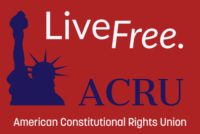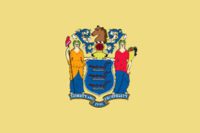Not so long ago, Americans assembled on one designated day — Election Day — to choose our national leaders.
For those unable to cast votes on Election Day, early voting and absentee ballots are available options. In-person early voting has the advantage of the individual citizen at a polling place after check-in by election officials.
Today, however, early voting periods have been stretched to absurd lengths, with some states beginning their voting for the November election more than a month or more in advance. There is no empirical evidence that early voting increases turnout, but it does have serious downsides, including:
-
- Producing less-informed voters. After casting an early ballot, a voter checks out of the national debate regardless of what happens. They won’t care about the televised debates, won’t consider options, and won’t fully participate in the political process. Many voters have occasionally complained to election officials and representatives of a desire to recast their vote because they have changed their mind. In most, if not all states, this is impossible to do with early voting.
- Increasing election administration and campaign costs. Elections that drag on for weeks require the logistical costs of administering an election, including more poll workers and salaries associated with the voting process.
- Facilitating double voting and vote fraud. Counties that utilize early voting need to have the necessary technology to ensure simultaneous verification and record of vote history. Early voting allows voters to vote anywhere in the county, not simply in their precinct. The jurisdictions must have the necessary voting equipment, statewide registration system, and electronic poll book system to prevent individuals from voting more than once in the state or county during the early voting period. It is also more difficult for political parties to secure sufficient poll watchers to monitor polling places for an extended early voting period.
ACTIVITY
ACRU’s Protect Elderly Votes’ concerns about nursing home fraud confirmed
In a state where ballot harvesting is illegal, a remarkable coincidence occurred right before election day. According to reports from the Senate Judiciary Committee, 25,000 nursing home residents in different facilities across the state all requested ballots at the same time. Who ordered them? And more importantly, who filled them out? An investigation is currently ongoing.
Nevada whisleblower affidavit alleges disregard of mail-in signature verification
An affidavit from a Nevada whistleblower alleges that election supervisors Clark County, which accounts for the vast majority of voters in the state, counted mail-in ballots despite concerns about whether signatures were valid. Source: Nevada [...]
ACRU Action’s Ken Blackwell condemns the trail of fraud in the Keystone State
From his experience as the former mayor of Cincinnati and a high ranking Ohio state official, ACRU Action Board Member Amb. Ken Blackwell takes on the corruption and bad intent of PA Governor Tom Wolf and his agenda to nullify votes of the good people of Pennsylvania.
ACRU Action’s Ken Blackwell condemns the trail of fraud in the Keystone State
From his experience as the former mayor of Cincinnati and a high ranking Ohio state official, ACRU Action Board Member Amb. Ken Blackwell takes on the corruption and bad intent of PA Governor Tom Wolf and his agenda to nullify votes of the good people of Pennsylvania.
The “furthest from my polling station” voting award
In the coolest story of the week, NASA astronaut Kate Rubins voted from space. She is currently stationed on the International Space Station. In 1997, Congress passed a bill allowing voting from space. Who knew? We assume she had no “interference” from her Russian colleagues, Sergey 1 and Sergey 2 as they are affectionately referred to at NASA. A great story to share with your kids.
Dead Voters Receiving Mail-In Ballots Across New Jersey Ahead of Election
Bring out your dead! The dead are now receiving mail-in election ballots in New Jersey, so are people who haven’t lived at an address in years, sometimes decades, if ever at all. One New Jersey Mayor, Carlos Rendo of Woodcliff Lake, who ran for Lt. Governor in 2017 today sounded the alarm.
Court decides the 14th Amendment only applies after elections
In New Jersey, an Obama appointed judge rejected a Republican lawsuit that charged last minute mail-only changes to the state’s voting system would be a vote integrity mess. The judge used a legal maneuver we expect to see more of—no one has yet to “suffer an injury” and therefore the case is dismissible. He even parroted the DNC argument in his opinion that GOP concerns were “hypothetical.” Neither the state nor federal Constitutions seemed to matter.
Liberal state supreme court gives tacit approval to forgery
On Oct. 23, The Pennsylvania Supreme Court’s (5:1 Democrat majority) ruled that local election officials cannot reject mail-in ballots because the voter’s signature on the ballot does not match the voter's signature on file. This is a boon for ballot harvesters, particularly those operating in senior residential facilities, as they no longer must worry about practicing stolen voter signatures before mailing stolen ballots.
Voters who want to vote in person forced to use Postal Service
The Republican governor of Missouri signed a law in June allowing people receiving mail-only ballots to return them in person, as some voters prefer dropping off ballots instead of standing in line during COVID. It required signature validation. A liberal group sued, and won at the appeals level. Now people who have thought since June that they could hand drop their votes are subject to the whims and inefficiencies of the US Postal Service.
Michigan Governor Whitmer is an executive-level vote fraud activist
With bipartisan support, two vote security measures recently passed the Michigan House and landed on Democrat Governor Whitmer’s desk. She then vetoed these bills - they would make it illegal to request more than one ballot, or to fill out someone else’s ballot without their knowledge. In addition to being a COVID crisis tyrant, she’s a vote fraud enabler. It’s just that simple; and disgraceful.



